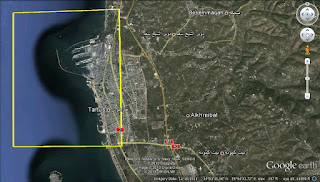First, you have to read this Joshua Foust's
Staff: The Forgotten Metric of Presidential Success (hat tip to Brett Friedman):
Obama did not rely on his functional experts to do this work, the people who would have to mobilize the enormous apparatus of government to accommodate any big change in policy; he went to personal, trusted associates whom he knew would always defer to his judgment. His staffing decisions had the effect of cutting the State Department out of statecraft (at a speech last year in Cuba, John Kerry made it a point not to acknowledge Rhodes’ work while praising Obama’s other adviser, a subtle but unmistakable snub).
More prosaically, Obama has made choice after choice that belie a worrying ignorance of the power that good staff can have.
***
That provides a context for this NYTimes piece by Michael S. Schmidt and Helene Cooper
More Is Needed to Beat ISIS, Pentagon Officials Conclude
In the past, the Pentagon’s requests for additional troops in both Iraq and Afghanistan have been met with skepticism by Mr. Obama, and his aides have said he has resented what he has regarded as efforts to pressure him. But the rise of the Islamic State has alarmed the White House, and a senior administration official said Thursday that the president is willing to consider raising the stakes in both Iraq and Syria.
I suppose we will be debating whether the final withdrawal of U.S. forces from Iraq in 2011 under President Obama was precipitous and whether that allowed ISIS to "pop up" for the rest our natural lives. The debate will include whether Mr. Obama was responsible for the withdrawal or was merely playing out the hand dealt to him by his predecessor. See this NPR
"fact check" which contains an interesting assessment of Mr. Obama's inaction:
Thousands of American troops had died, and by the time Obama announced the withdrawal, fully three-quarters of Americans supported the withdrawal (though a majority of Republicans did not).
Still, many had real concerns al Qaeda wasn't done for. And there were some, including U.S. senators, saying the troops should stay just in case things went downhill. They say Obama should have sold the idea, hard, to Maliki.
Iraq analyst Kirk Sowell said Obama never really tried.
"This is one of the criticisms of Obama — that he sort of wanted the negotiations to fail," Sowell said, "and, so, he didn't even talk to Maliki until it was basically all over."
You can sort out your own issues of "sins of omission" vs. "sins of commission," but in my world the person who relieves the previous officer of the deck (OOD) and then does not change course to avoid a collision that was not apparent to the previous OOD cannot then blame the prior watch for "putting the ship on a course to a collision." As the saying goes, "That dog won't hunt."
Worst of all is the apparent lack of a strategy in the U.S. effort in the Middle East. As the NYTimes reporters have it:
The Pentagon’s desire to expand the military presence on the ground comes as the American public remains skeptical of the United States’ getting more deeply involved in another conflict in the Middle East. Polls have shown that Americans are not convinced the Obama administration has a plan to defeat the Islamic State, which has maintained control of nearly all the large cities it took over in 2014.
How can you have plan to defeat ISIS unless you have an idea of what the Middle East should look like when ISIS is defeated? Mr. Obama has already called for Syria's Assad to
"go away" though he seems lately to have been more wishy-washy on that
view. Russia and Iran are involved in Syria
now and had we decisively acted earlier they might not have been so.
Perhaps Mr. Obama feels strongly diffident and, taking the easy path, has simply voted "present" again. Those deferred decisions tend to catch up with you, though. So, now, more U.S. boots on the ground.
Shoulda, woulda, coulda done this earlier and squashed ISIS at the gitgo.
See also
here,
here and
here.























